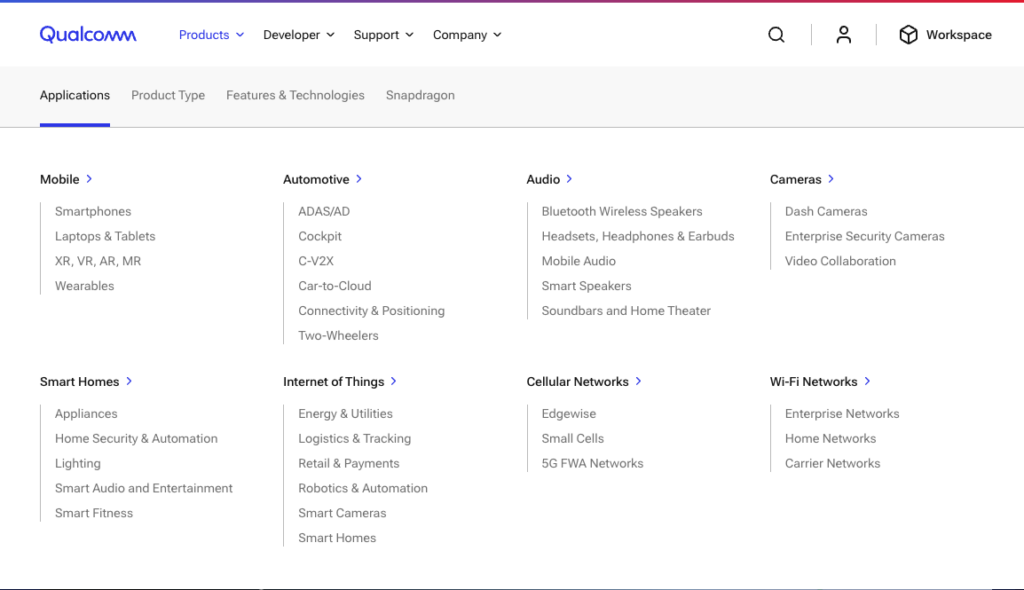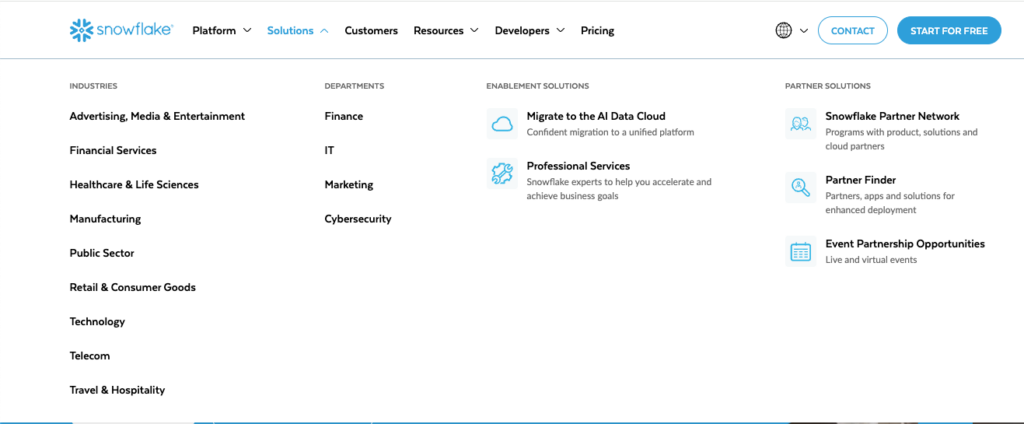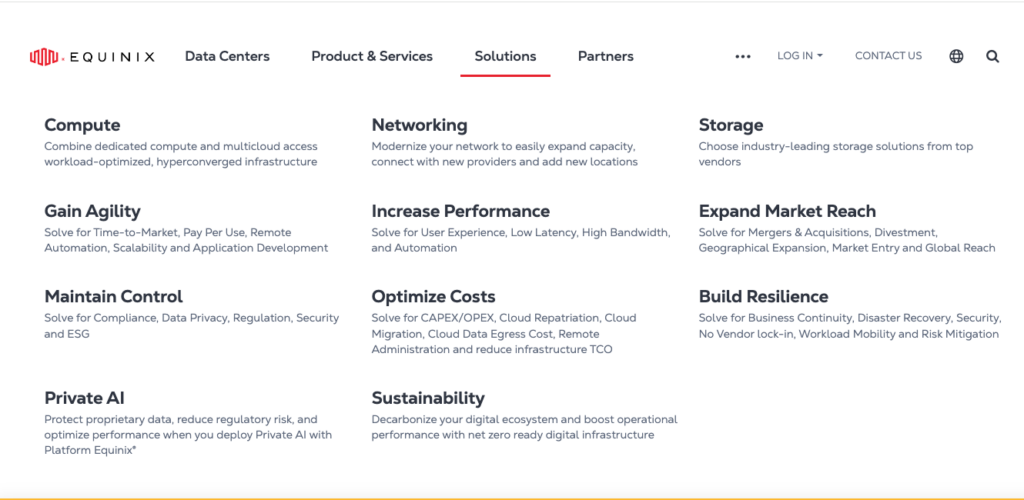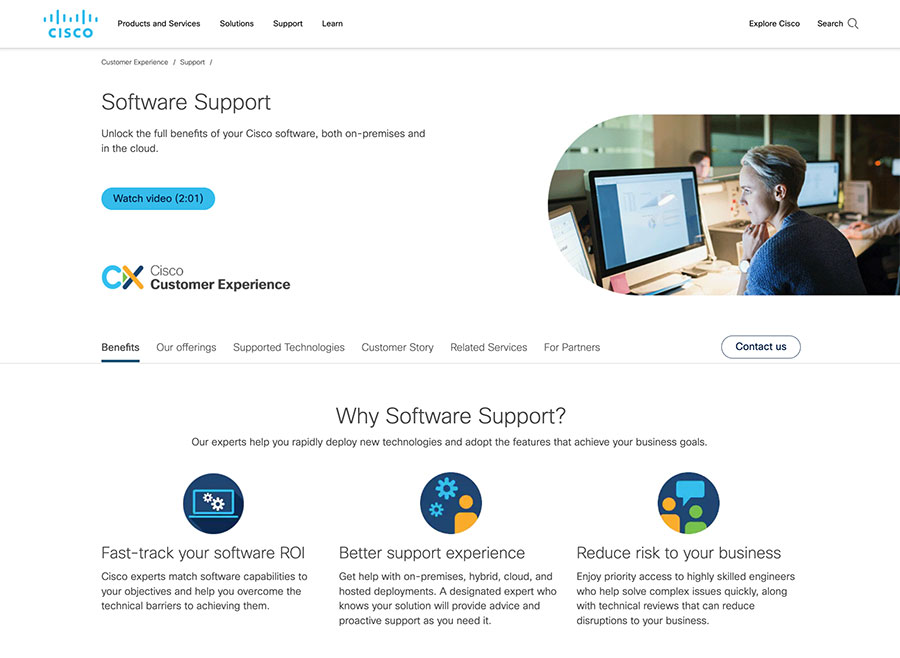Are Customers Confused by How You Define a Product vs. Solution?
The fast-changing software-as-a-service (SaaS) market has shifted how B2B marketers label their offerings. The lines between products, solutions, and services have been blurred, and their definitions are not always clear—or applied consistently.
Your customers might be confused. To distinguish your offerings, it’s crucial to make sure that customers can quickly grasp the differences between your products and solutions, plus how they fit together into the bigger picture.
Read this quick guide for common definitions—to give you a starting point for how to define a product vs. solution vs. service for your own company—and tips on when to label your offering a product or solution.
What Is a Product?
A product is an off-the-shelf, standalone offering that can take the form of hardware, software, or even a service. A product has a distinct name, price, and set of features.
Product characteristics
- Typically based on a specific technology and developed out of a company’s core competency
- Messaging focuses on the product itself: functionality and features, delivery models, etc.
- Typically organized by technology type or product family on a company website
Relation to solutions and services:
- Individual products and services can be bundled into a more comprehensive, customer-focused solution
- Some product offerings include a related service or ongoing support
- Customers searching for specific products (as opposed to solutions) already have a strong understanding of their needs and technology requirements


What Is a Solution?
A solution describes everything a customer needs to solve a specific problem, and often includes a collection of curated products and services.
Solution characteristics:
- A solution is inherently more customer-centric than a product, since it is developed based on customer needs rather than company capabilities.
- Messaging is often focused on customer challenges and basic education on what a solution is and how it works.
- Solution webpages often have a strong educational component, covering topic basics and benefits before describing a company’s offerings.
- Company solutions can be organized by topic, need/use case, industry, or company type.
Relation to products and services:
- Individual products and services (such as setup, implementation, or ongoing support) are often customized and bundled into a more comprehensive, customer-focused solution.
- Customers searching for solutions (as opposed to products) may be at an earlier buying stage and focused on educating themselves about how to solve an identified problem.


What Is a Service?
A service describes any technical expertise, strategic advice, management, or consulting that facilitates the use of technology.
Service characteristics:
- A service can be a standalone offering, or bundled into a company’s solution offering, or even its products.
Relation to products and solutions:
- Services complement and support products and solutions. They are not technology in and of themselves.

4 Questions to Help You Determine When to Use Product vs. Solution
1. What phase of development is the offering in?
- If you’re in the developmental phase, your way of thinking and terminology about the offering is likely internally focused, and more likely to be product-focused. Think strategically about how your offering should be described and labeled externally to customers.
2. What was the catalyst for developing the offering?
- Offerings stemming from company competencies often result in products, while those bundled or adapted from existing offerings to solve a customer problem often result in solutions.
3. How mature is the market?
- Mature markets have specific terms and product categories that will already be familiar to your audience. If the market is newer and less standardized, it may be helpful to package your offering as a solution.
4. Will the offering include services or consultative elements?
- Standalone offerings are often considered products. Combinations of products and services are more commonly thought of as solutions.
Still Not Sure How to Label and Organize Your Products and Solutions?
Tendo can help you develop your SaaS messaging and apply UX design expertise to create intuitive product and solution webpages. Contact us to learn how our content strategists can structure your content to effectively guide customers to the products and solutions they need.
First published July 15, 2022









